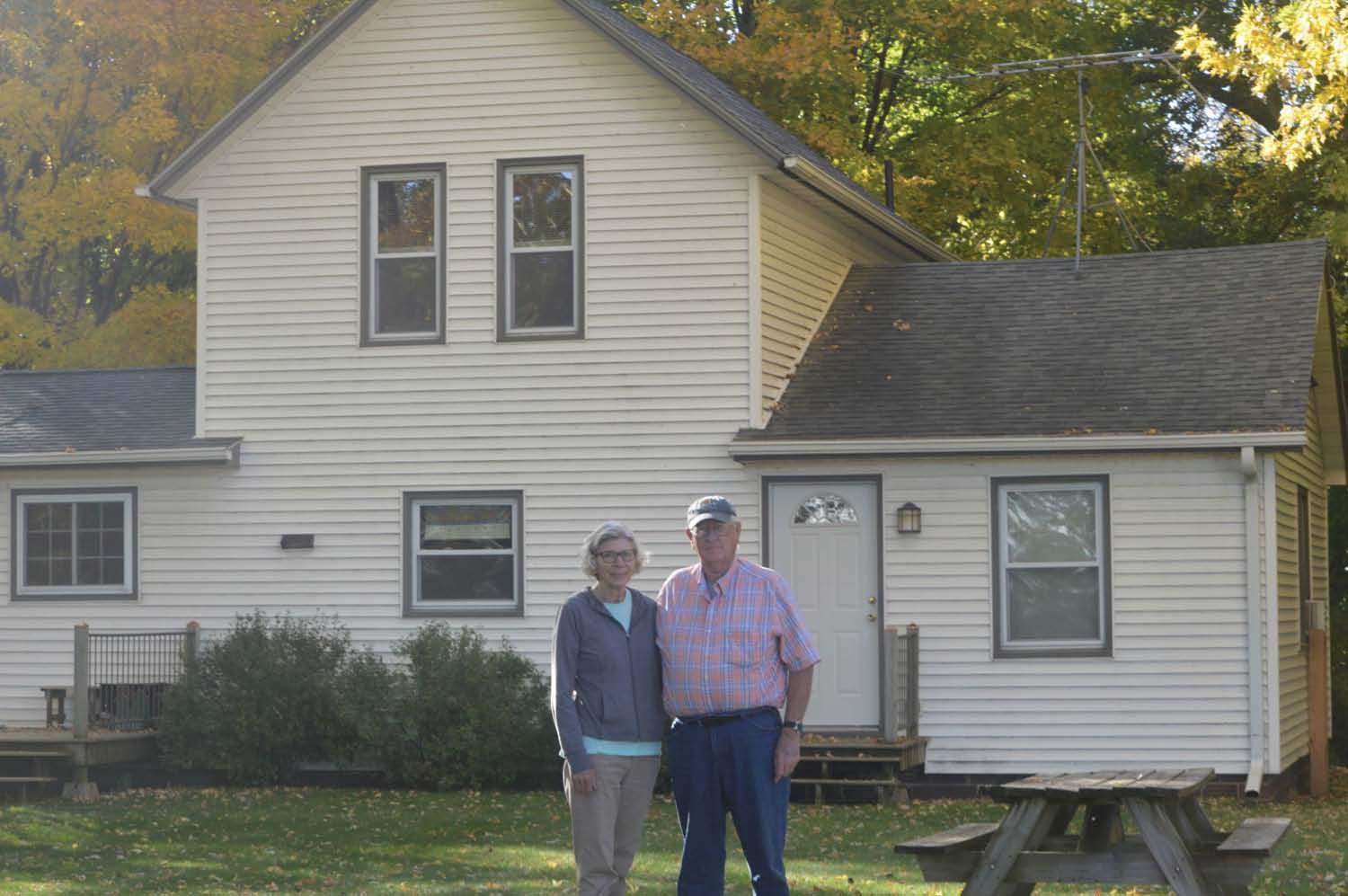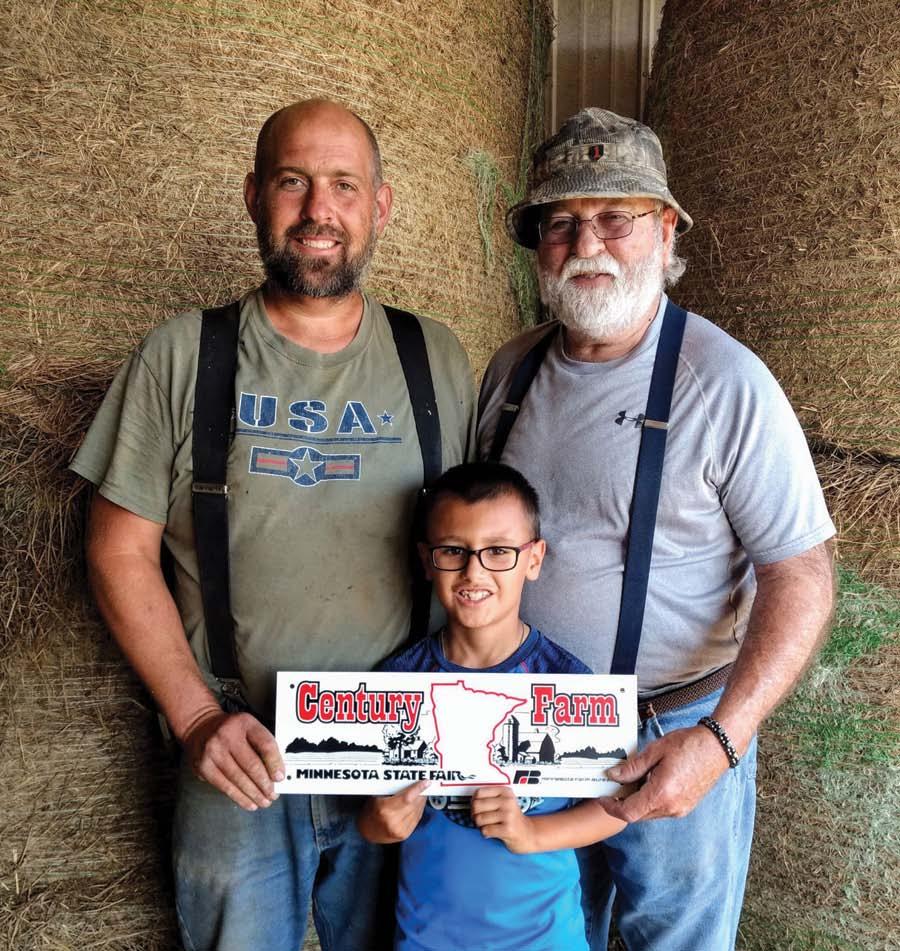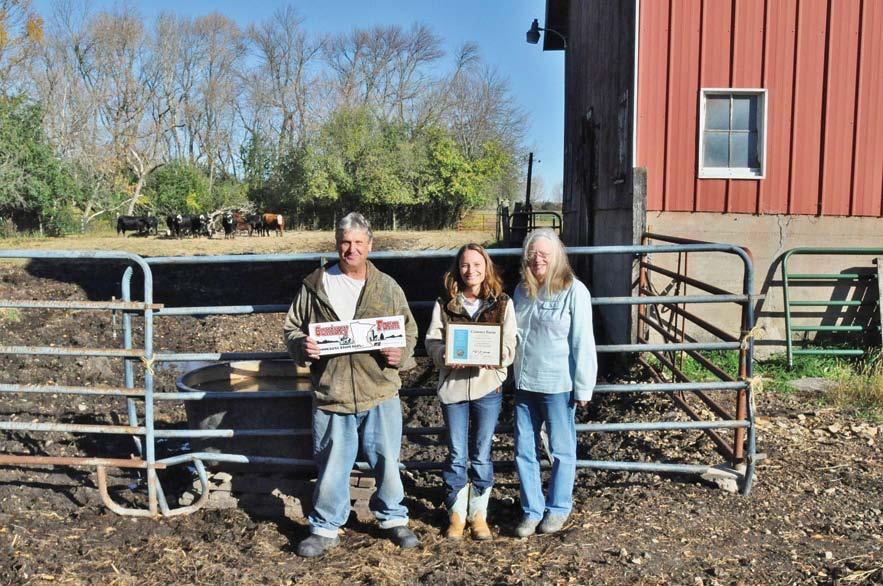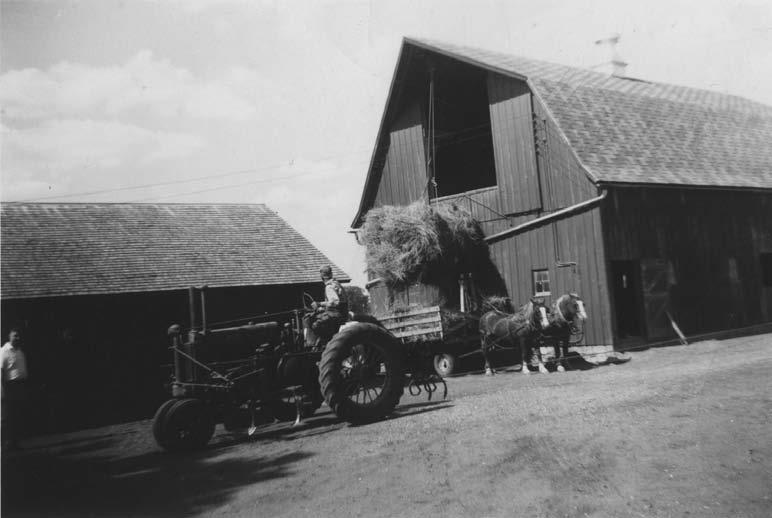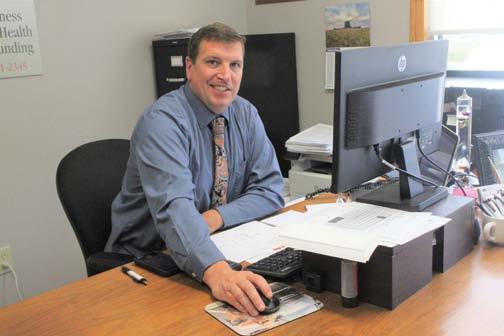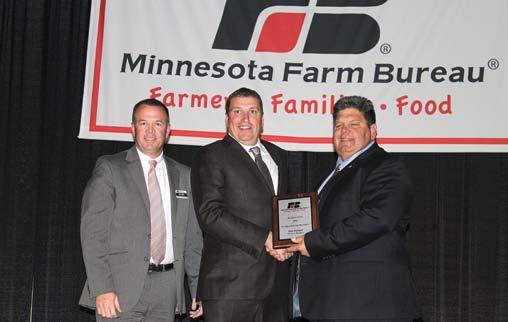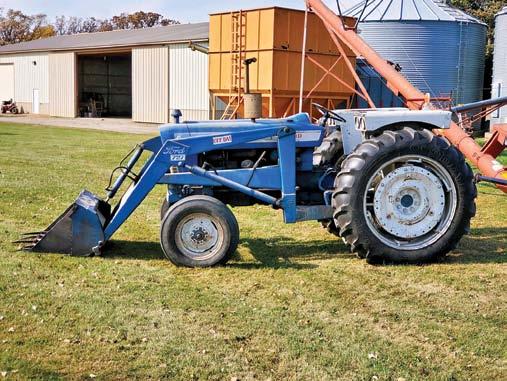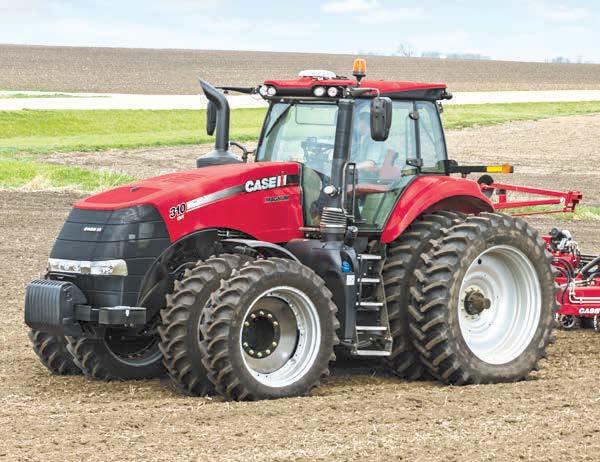
4 minute read
Schwichtenbergs recall fond memories on century-old farm
from Century Farms 2020
by Kate Noet
By MISTY SCHWAB misty.schwab@apgsomn.com
MORRISTOWN — A slab of wood inside Robert “Bob” Schwichtenberg’s tractor shed is evidence of the owners who came before him on his century-old farm in Morristown.
The first to carve his name was James, though his last name is illegible. The next is Wensel Dusbabek, then Albert Schwichtenberg, and finally Bob’s own name. He and his wife, Tammy, are the ones to own the farm 100 years after it became a part of the Schwichtenberg family.
Bob’s grandparents, Albert and Emma Schwichtenberg, bought the family farm in March 1919 from Wensel Dusbabek. He estimates his own dad, Ewald, and uncle Herbert bought the farm from Albert in the 1940s, before Albert died in 1953.
Apart from two years in the service, Bob has spent his whole life on the Morristown farm. He remembers his family owning horses, hogs, chickens, ducks, pigs and milk cows. Ewald and Herbert grew hay for the cows and oats, corn and soybeans.
In 1967, Bob, who has two siblings, purchased the farm from his dad. Since then, he said the farm “has really changed” from the two-row equipment and pull-type combine. Now, he said, “everything is big.”
Keeping it in the family
Unlike his father, Bob didn’t raise pigs, chickens or ducks. But he did maintain the tradition of raising dairy cows until it made more sense to switch to beef cattle. The creamery had quit taking canned milk, and Bob started working construction, both which warranted the transition.
FARM RELICS
tammy and Bob schwichtenberg mentioned two main relics they have on their farm. One is a dinner bell they hang on their front porch, which they’ve owned for many decades, and another collectible item is an allis-Chalmer
D15, which Bob had refurbished. tammy said the tractor looks so nice she won’t allow Bob to use it for plowing or pushing snow. they keep it in their tractor shed and take it out for show. calls seeing farms across the street. Her family didn’t farm, but they owned pigs and ducks in town, a common practice at the time.
Bob and Tammy raised two girls and a boy. The oldest, Paula, lives in Waterville, and the youngest, Jodi, lives in Oak Creek, a suburb of Milwaukee, Wisconsin. Their only son, Robert “Rob” Schwichtenberg lives right across the road from his parents. Rob was in the last Morristown graduating class before it merged with Waterville-Elysian, and Jodi graduated with the first class of combined students.
Paula Meskan, Tammy and Bob’s eldest, remembers playing outside with the neighbors up the road and learning to drive on the farm as a child. She and her siblings helped feed the calves when her dad raised milk cows.
“I remember harvest time, Dad being out in the field running the picker for whatever he was picking, and when we were little especially, Mom would run the wagon back and forth to the granary or the corn crib,” Paula said. “It’s not a one-person job.”
A big life lesson Paula learned from her farm-based upbringing was that farm work doesn’t have a 9 to 5 timeline but rather “you work until the work is done.” For that reason, her family relied on neighbors to help if they ever took a vacation, and their
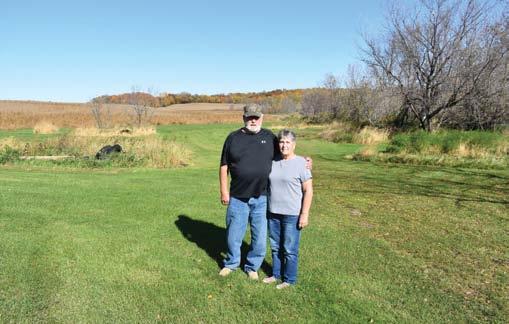
this refurbished allis-Chalmers D15 tractor is a prized possession for the schwichtenberg family. Pictured from left: tammy and robert sr. (Bob) with their son, robert Jr. (rob) on the century-old farm. (misty schwab/southernminn.com) neighbors relied on them. was great. I did worry at times when Paula has enjoyed taking her own them, I thought they would get lost children to their grandpa and grand- in the corn field, but that never hapma’s farm, where they hunt in the pened.” woods and celebrate holidays. they were smaller and I couldn’t see If there was ever a time her children “I liked the country,” Rob said. “I might not have enjoyed the farm, liked the farm; it’s peaceful. I helped Tammy said it was during haying milk cows, carried milk pails, baled season because they all dealt with hay, worked the fields, mowed the allergies when it came time to bale. lawn, put up fence and chased the Baling hay was the main responsibilcows.” ity for the Schwichtenberg children, and they all drove tractors. The famRob recalls whenever he or one of his ily used a small, rectangle baler to robert and tammy schwichtenberg, pictured, like the location of their sisters were called to the office over pick up and toss the hay, but Bob said morristown farm, one reason being the woods in their backyard. their the intercom at school, they knew the they converted to round bales at the children and grandchildren learned to hunt, and continue to hunt, in cows had gotten out and they needed end of their farming years. these woods. (misty schwab/southernminn.com) to go home and round them up. When it came to raising children on All three children helped with chores, but Bob and Tammy didn’t want to ticipating in sports and other school activities for the sake of the farm. Schwichtenberg the farm, Tammy said, “I thought it hold back their children from par“They really didn’t have responsibiliContinued on page 21


